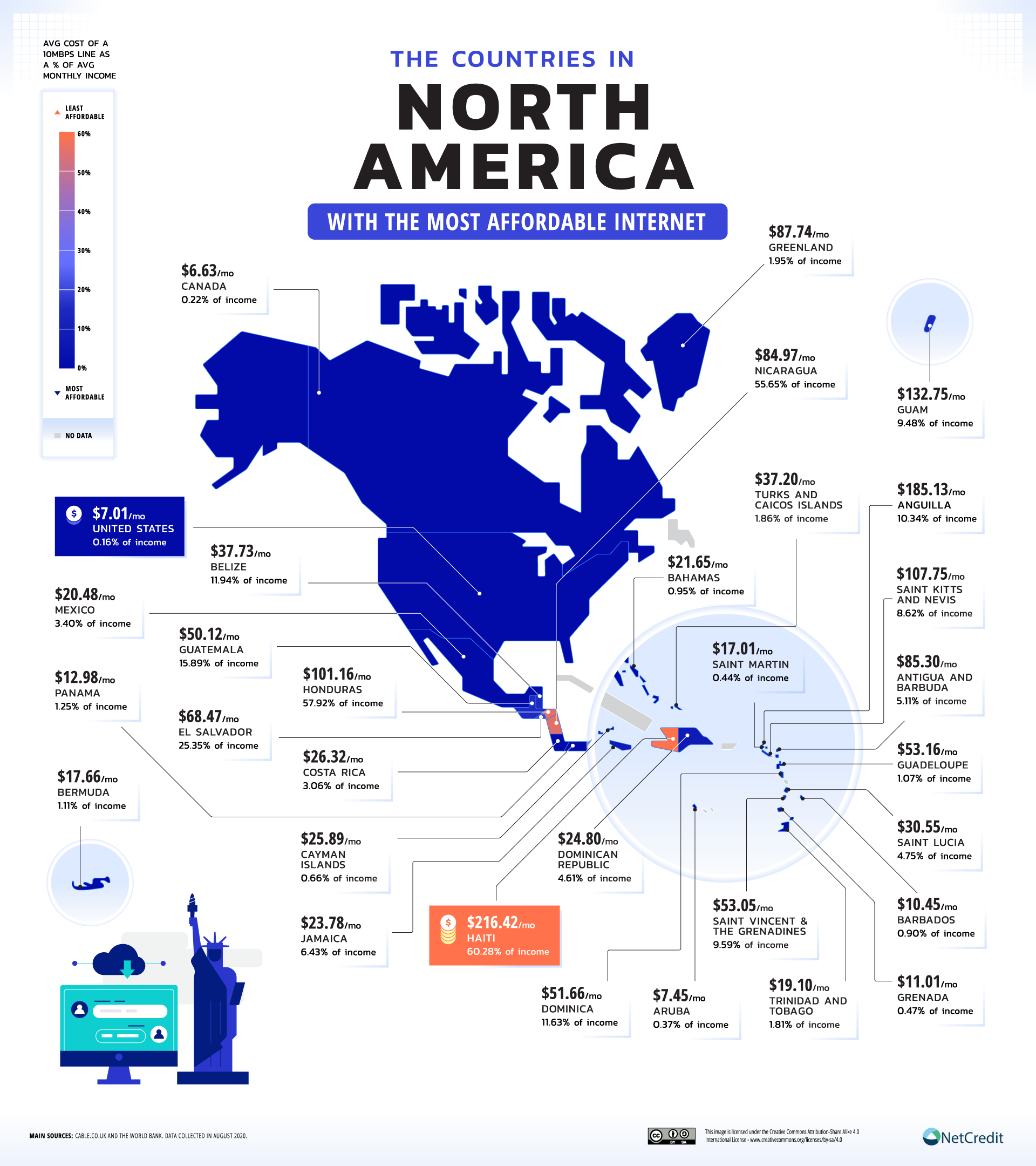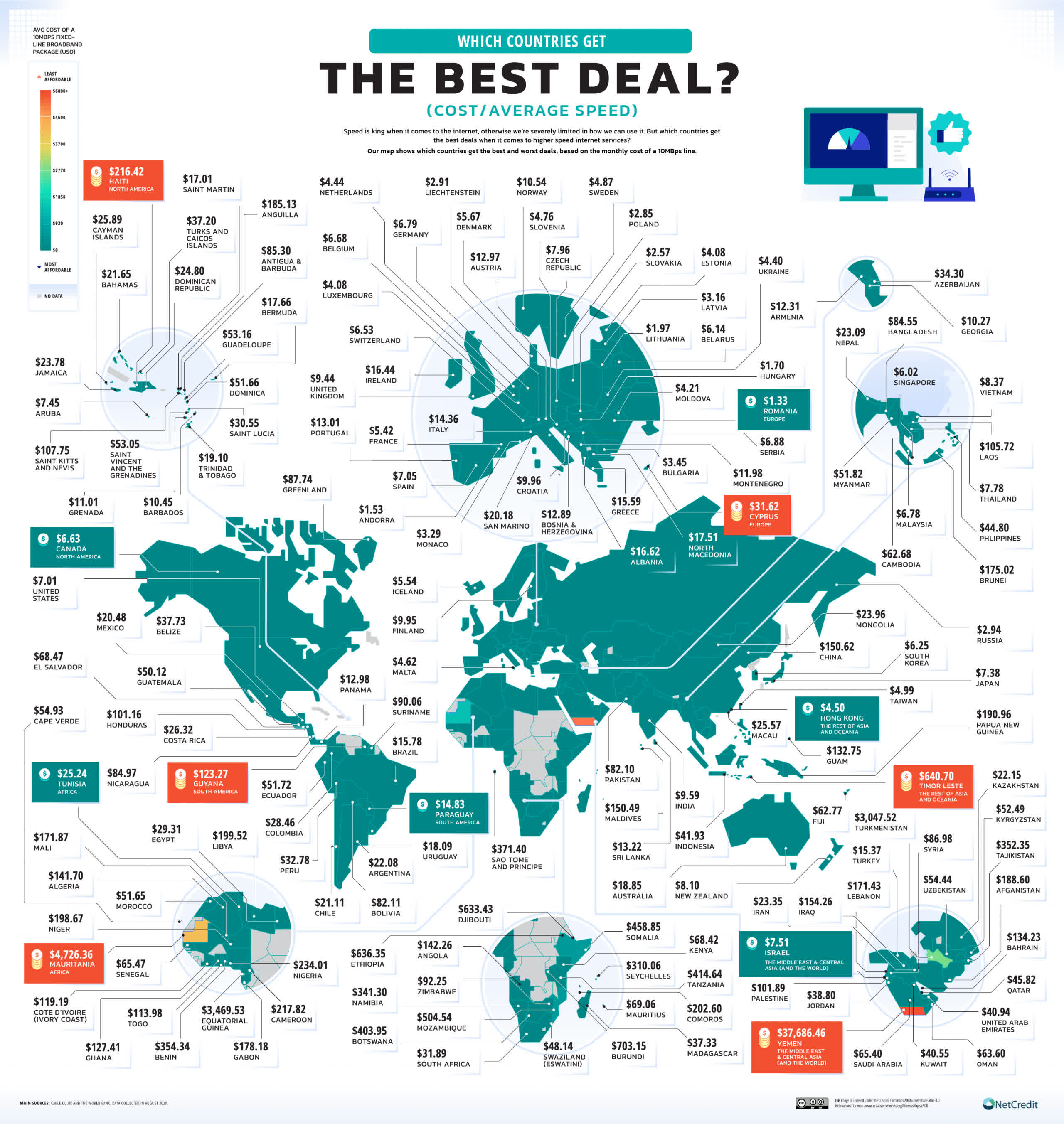In brief: It’s fair to say that in most countries today, internet access is an essential utility in the same category as water and electricity. But broadband doesn’t cost the same amount everywhere, and in some developing countries where earnings are low, it’s hundreds of times more expensive than the average monthly wage.

NetCredit, a Chicago-based online lender, used World Bank data to come up with the average monthly wage in every country in the world. It then used Cable.co.uk’s worldwide broadband price research to work out how much of an average salary you would need to spend in each country for broadband.
Sitting at the bottom of the table is Yemen. The county has been embroiled in a civil war for years, which has contributed to a broadband package costing $2,466 per month, or 2,792.56 percent of the average $88.33 wage.
For the most affordable broadband deal, nowhere can beat Monaco. Its $34.49 subscription is just 0.68 percent of the average $5,043.69 monthly wage.
When it comes to the price of internet services measured against speed, Romania is the world’s cheapest at $0.13 per Mbps. Not surprisingly, Yemen is bottom of the pile again, with a price of $3,768.65 per Mbps.
In the US, where NetCredit places the average wage at $4,000 per month, the company has worked out the cost of a 10Mbps broadband line as being $7.01 per month, which is just 0.16 percent of the average income. Using the same metric, Canada’s internet is 0.22 percent of the average wage, while the least affordable country in North America is Haiti, where a $216 per month cost is 60.28 percent of the average wage.
While the majority of countries pay only a small percentage of their average wage to get broadband, developing countries and those affected by war are all at a disadvantage when it comes to value; a result of low wages and a lack of reliable broadband infrastructure.
https://www.techspot.com/news/87758-here-countries-most-least-affordable-internet.html

